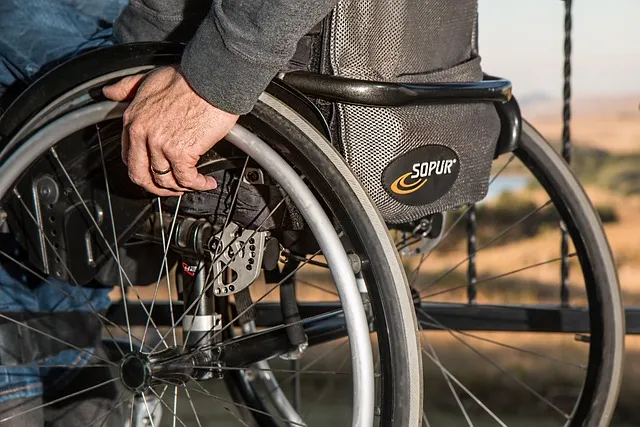Kaiser Family Therapy emphasizes open communication, mutual respect, and effective conflict resolution as foundational elements for strong family dynamics. Through Integrative Family Therapy models, therapists guide families in navigating complex relationships, addressing conflicts, and strengthening bonds. This holistic approach, which includes online therapy sessions and individual support, fosters understanding, empathy, and lasting solutions, ultimately promoting healthier family systems and improved emotional well-being.
Family dynamics are the intricate web of relationships and interactions within a household, shaping every member’s experience. This article explores strategies for improving family dynamics, drawing insights from Kaiser Family Therapy. We delve into understanding the foundational elements that contribute to strong families, emphasizing open communication as a key bond-enhancer. Additionally, we provide effective conflict resolution tactics and highlight methods to foster love and support, ultimately nurturing a positive environment.
- Understanding Family Dynamics: Uncovering the Foundation
- The Role of Communication in Enhancing Bonds
- Strategies for Effective Conflict Resolution
- Fostering Love and Support: Nurturing a Positive Environment
Understanding Family Dynamics: Uncovering the Foundation

Understanding family dynamics is akin to unearthing the foundation of a house. Just as a sturdy home requires a solid base, families thrive when their inner workings are grounded in open communication and mutual respect. Kaiser Family Therapy emphasizes this foundational aspect by helping individuals within a family system to recognize and appreciate each other’s unique roles, needs, and emotions. Through this process, families can begin to navigate challenges more effectively, fostering an environment of support and growth.
Consider the family as a complex web where each member is interconnected. The best family counselors in [location], often backed by programs like Kaiser wellness initiatives for families, guide these connections towards healthier interactions. Accessing kaiser therapy services allows families to delve into underlying issues, address conflicts, and ultimately strengthen their bonds. By doing so, they not only improve current dynamics but also lay the groundwork for future resilience.
The Role of Communication in Enhancing Bonds

Effective communication is a cornerstone of fostering strong family bonds and resolving conflicts within the household. Kaiser Family Therapy emphasizes that open dialogue allows each family member to express their thoughts, feelings, and needs, creating an environment of understanding and empathy. By actively listening and responding, parents and children can build trust and strengthen their relationships. This process enables the identification and addressing of underlying issues, promoting a healthier family dynamic.
Integrative Family Therapy models, supported by kaiser mental health support, offer valuable tools for enhancing communication. These models encourage all family members to participate in therapy sessions, providing a safe space to share experiences and work through challenges together. The kaiser network of therapists can guide families toward more productive ways of communicating, ensuring that each individual feels heard and respected. Through these collaborative efforts, families can navigate complex emotions, improve problem-solving skills, and create lasting memories built on strong, connected relationships.
Strategies for Effective Conflict Resolution

Effective conflict resolution is a cornerstone of any healthy family dynamic. Kaiser Family Therapy emphasizes the importance of open communication and active listening as foundational skills for managing disagreements. Encouraging family members to express their feelings and needs directly, without judgment or defense, can significantly reduce tension and foster understanding. Online family therapy sessions offer a flexible and accessible way to practice these skills, enabling families to navigate conflicts in a safe and supportive virtual environment, particularly when face-to-face interactions are challenging.
The Kaiser private practice partners often employ the family systems therapy approach, viewing each family member as an integral part of a complex web of relationships. By understanding how individual behaviors impact the whole system, families can begin to identify patterns that contribute to recurring conflicts. Through this lens, solutions become more collaborative and lasting, promoting a deeper sense of connection and resilience within the family unit.
Fostering Love and Support: Nurturing a Positive Environment

Fostering love and support is a cornerstone of improving family dynamics, as it creates a positive environment that strengthens bonds and promotes healthy communication. In the context of Kaiser family therapy, therapists specializing in trauma play a crucial role in helping families navigate challenging situations. By integrating individual therapy within Kaiser, these professionals enable each family member to process their feelings and experiences in a safe space, fostering an atmosphere of understanding and empathy.
Integrative family therapy models are particularly effective in this regard, combining elements from various therapeutic approaches to address the unique needs of every family. This holistic approach ensures that all members feel heard, validated, and supported, leading to better conflict resolution and enhanced emotional well-being. Ultimately, nurturing a positive environment through love and support is key to strengthening family dynamics, making it an essential aspect of any family therapy program, including those offered by Kaiser.
Family dynamics are complex, but with the right tools and mindset, they can be transformed. By understanding the foundation of our relationships through Kaiser Family Therapy principles, we can improve communication, resolve conflicts effectively, and foster a loving, supportive environment. These strategies not only strengthen bonds between family members but also create a lasting positive impact on each individual’s well-being. Remember, every family has the potential to thrive, and with dedicated effort, it is possible to achieve harmony and unity.






